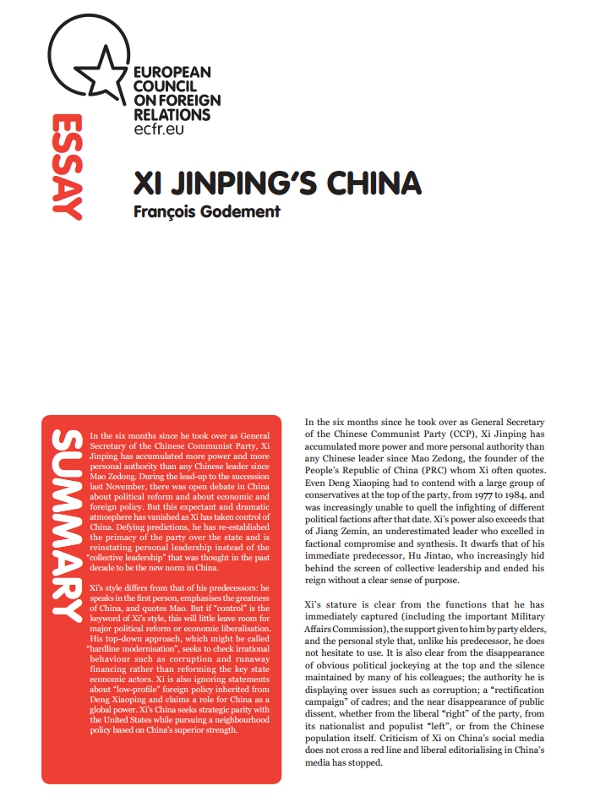Xi Jinping’s China
The politics of China’s most powerful man
Six months after taking power in China, how much do we know about Xi Jinping and the direction he is taking the country? In the lead-up to his succession in late 2012 there was open debate in China about political reform, and economic and foreign policy. So what do we know now?
In “Xi Jinping’s China”, François Godement explains that the world’s most powerful man has re-established the primacy of the Communist Party over the Chinese state, and tends towards a personal approach to leadership.
- Xi has accumulated more power and more personal authority than any leader since Mao Zedong. His top-down approach will probably leave little room for major political reform or economic liberalisation; his “hardline modernisation” approach seeks instead to combat behaviour such as corruption and loose credit.
- The economy is the one area where Xi doesn’t seem fully in control. The price he has paid for broad support from party elders and conservatives is also an endorsement of major vested interests, which will constrain those arguing for major economic reform.
- Xi is ignoring his predecessors’ “low profile” approach to foreign policy, and claims a role for China as a global power. Xi seeks strategic parity with the US while its regional approach is based upon China’s superior strength.
“Xi Jinping is pursuing a neighbourhood policy based on strength in which China subjugates small countries while building a “big power” relationship with the US. Xi seems to want to combine 19th century geopolitics with 20th century Leninist politics, in order to gain the upper hand in the globalised 21st century world.” – François Godement
Click here to download the German translation of “Xi Jinping's China”.
The European Council on Foreign Relations does not take collective positions. ECFR publications only represent the views of their individual authors.



